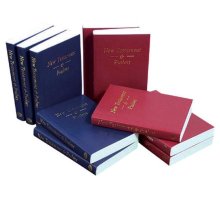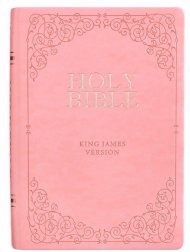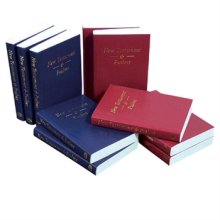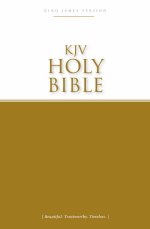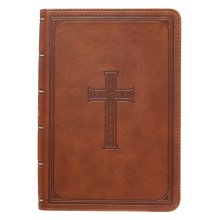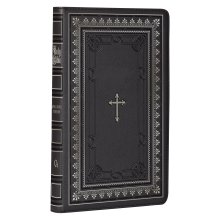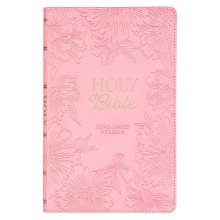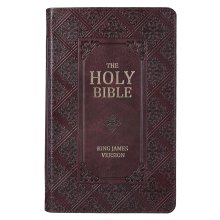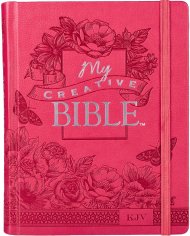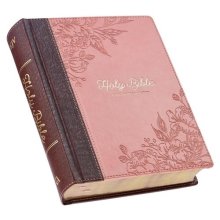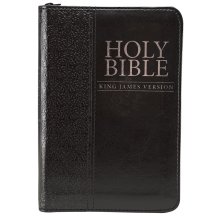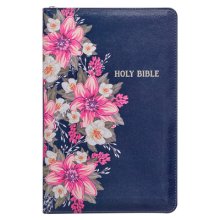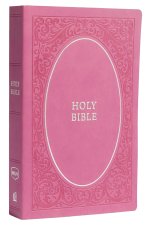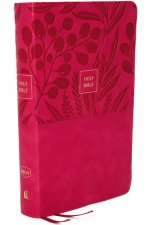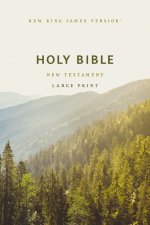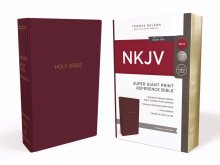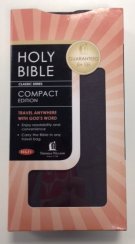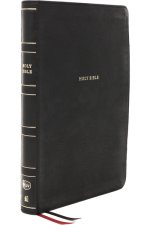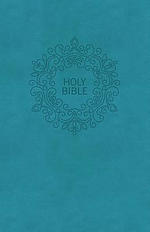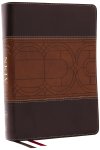For centuries, the King James Version (KJV) has been a cornerstone of the English-speaking world. Its majestic, poetic language has shaped literature, inspired hymns, and been the cherished translation for generations of Christians.
Then, in 1982, the New King James Version (NKJV) arrived, promising to "update the vocabulary and grammar of the King James Version, while preserving the classic style and literary beauty of the original."
This leaves many readers asking: What’s the real difference?
Is the NKJV just a slightly tweaked KJV, or something else entirely?
And most importantly, which one is right for me?
In this guide, we'll break down the key distinctions to help you make an informed choice.
The main difference between the KJV and NKJV is the language. The NKJV updates the KJV's archaic words (like 'thee' and 'thou') to modern English for easier reading, while both versions are based on the same underlying Hebrew and Greek texts.
The Main Difference: Archaic vs. Modern Language
The most immediate and significant difference you'll notice is the language.
- The KJV (1611): Uses beautiful but archaic Elizabethan English. This includes words like "thee," "thou," "ye," and "thy," as well as verb endings like "-eth" (e.g., "goeth"). It also contains words that have changed meaning over time (e.g., "suffer the little children").
- The NKJV (1982): Replaces all of this with modern English equivalents. "Thee" and "thou" become "you," and "thy" becomes "your." Outdated words are updated to their modern counterparts for clarity (e.g., "verily" becomes "truly" or "assuredly").
Essentially, the NKJV aims to remove the language barrier of the KJV without altering the core structure and feel of the sentences.
A Key Similarity: The Underlying Texts
This is a crucial point that many people miss.
Unlike most other modern translations (like the NIV or ESV), the NKJV was created as a direct update to the KJV based on the very same original language manuscripts.
Both the KJV and NKJV use the traditional Textus Receptus ("Received Text") for their New Testament translation.
This means the NKJV is a true revision of the KJV, not a completely new translation based on different source texts. They share the same textual DNA, which is why they feel so similar in style and dignity.
KJV vs NKJV Quick Comparison Table
So, Which One is Right for You?
The choice ultimately comes down to your personal goals and reading preferences.
Choose the KJV if:
- You deeply love its poetic rhythm and majestic, traditional language.
- You grew up with it and its phrases are etched in your heart.
- You want to read the historic, classic translation of the English church for its literary and historical value.
Choose the NKJV if:
- You love the traditional accuracy and dignified style of the KJV but find the old English a barrier to understanding.
- You want a literal, word-for-word translation in modern, easily readable English.
- You want a Bible that feels classic but is accessible for personal study, memorisation, and family reading.
Find Your Perfect Bible Today
Whether you prefer the classic majesty of the KJV or the updated readability of the NKJV, the most important step is to get reading and allow God's Word to shape your heart.
- Explore our wide selection of King James Version (KJV) Bibles.
- Discover the modern classic in our collection of New King James Version (NKJV) Bibles.
- Still exploring your options? Our Bible Finder tool can help you compare these and other excellent translations.
Both the KJV and the NKJV are faithful translations that have blessed millions. By choosing the one that best suits your reading style, you are setting yourself up for a rich and rewarding journey into Scripture.
Still not sure which Bible is right for you? You can learn more in our complete, free 97-page ebook, 'How to Choose Your Bible'.



